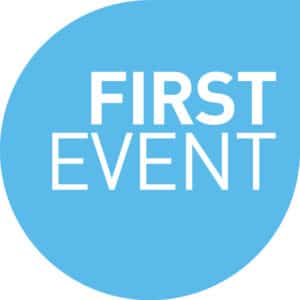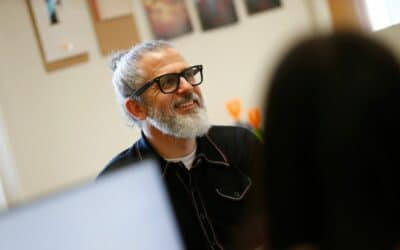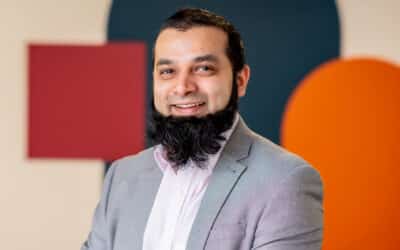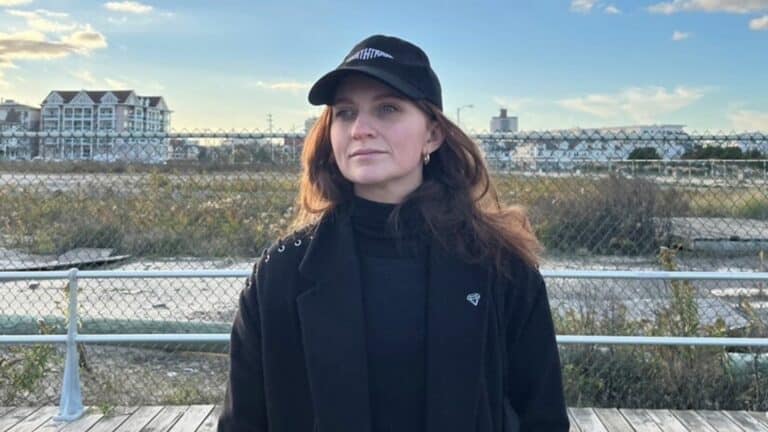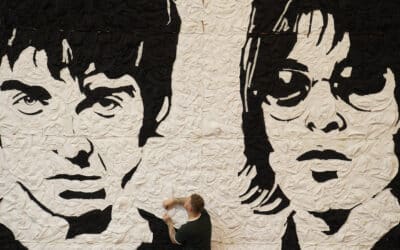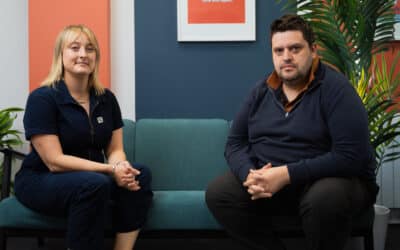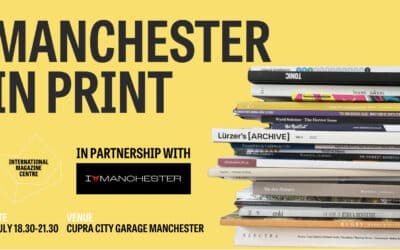Chloe Patrickson is a creative strategist at First Event, a corporate events agency headquartered in Leeds.
With experience from major projects like LEEDS 2023, Patrickson’s expertise in digital strategy, marketing and content creation helps her to inject creativity and strategic insight into every event.
From entering the events world to the biggest job challenges, she shares more on her career journey and words of advice.
How did you first get into your industry?
After getting my History of Art degree, I found a marketing assistant role at the Northern School of Contemporary Dance, which was the perfect place for me to start out. Whilst the product was a bit tricky to market (it’s quite a niche art form to try and promote), being a part of the arts industry was something I really enjoyed. I learnt so much in this role, and I ended up taking on different responsibilities that a marketing assistant shouldn’t necessarily have been tasked with! But I think that’s why it was so valuable, I just learnt so much!
What do you love about your job?
I’m such a nerd for data. I find it so interesting to dig down into the stats behind cultural impact and understand the how and the why behind our interactions with the media, products and brands. Once I discovered the world of insights and strategic research, it blew my mind, and I knew that was what I wanted to do for the rest of my life.
There’s also the more storytelling side of the role, which I love too. It’s one thing to be able to navigate a rabbit hole of research and insights, but if you can’t engage your team with what you’ve found, then there’s no point. I love taking what I’ve learnt and sharing it with my teams, clients, and their audiences. It’s that transition between finding the research to getting people excited about it that I love most.
Who – or what – has inspired you in your career?
This might sound cheesy, but I get my inspiration from everywhere. When I first started, I used to look towards big brands to see what they were doing. But as I’ve gotten older, I’ve realised that that’s not normally where trends start. It’s in the communities around us and the subcultures that trends are created, and that’s why it’s so important to keep your eyes open, look at what’s around you, and notice the patterns emerging. If you’re open to it and it’s something you’re nerdy about, like I am, you start to see those patterns a bit quicker over time. It’s almost like a skill, I guess. You’ve got to keep practising, and trying to make those connections.
What are the biggest challenges about your job?
As much as I love diving into the research, it’s also one of the hardest things about the job. It can be tricky to narrow down everything you’ve found into one idea that you want to pursue. When I first started in strategy, I used to get a kind of paralysis about finding the right avenue to go down. I now know that there isn’t a single right avenue, but lots of different ones that could work. It’s just about picking the one that makes the most sense for your client and having the confidence to believe in your rationale, and communicate that in a way that lots of people can get on board with. Find that one human truth that everyone can easily hook into, and paint a really clear picture of where you’re taking them.
What skills have been the most crucial to you succeeding in your career so far?
Above anything, I’d say curiosity and openness. For example, I’ve always tried to understand as much as I can about other departments that I work with, and really get a sense of what their role is. When you understand what people are thinking about in their day-to-day roles, you can start to speak their language, which is so important when you’re trying to take people on a journey.
Another crucial skill for this job is taste. Some people say it’s something you can’t learn, but I disagree. I think you can develop your taste, and your understanding of what looks, reads and sounds good. You do that by looking at inspiration, speaking to other creatives, and learning more about the kinds of things that are going to stay in people’s minds.
What was your first salary and what could someone getting into the industry expect to earn nowadays?
My first salary was very much a starting salary of £12k. I think that because I was working in the arts, the pay was a little bit lower, as your budgets are so dependent on the funding you can get. It wasn’t until later in my career that I started to earn something that matched the amount of work I was putting in. But today I would expect someone in an entry position for a strategic role to be on at least £32k to £34k.
What education or training would be most useful for someone looking to follow your career path?
I wouldn’t say that there’s particularly one single training or education path you should follow if you want to become a strategist. Throughout my career, I’ve always looked for new ways to learn about different subjects, and I’ve done training in design, strategy, and digital marketing to name a few. I think lots of people don’t know that their employers often have a pot of money set aside for training and upskilling.
If they don’t, you can try and pitch yourself to go and do the training, on the premise that you’ll bring back the ideas you learn to implement in your organisation. If anyone is looking for a solid place to get started with strategy, I’d recommend the beginner strategy course on D&AD.
What advice would you have for someone looking to follow your path?
I have a few bits of advice for anyone in this industry:
- Never burn a bridge. Especially in the events industry, you cross paths with people all the time, and you never know who you’re going to bump into later down the line. I’m not saying you have to be sickly sweet to everyone all the time, but you should always try and finish a project with the door still open.
- Never stop learning. Don’t be afraid to try a bit of everything, and figure out what you want to do from there. If I had stopped dipping in and out of different opportunities, I wouldn’t have found that this is what I wanted to do.
- Don’t be scared of mistakes. The biggest lessons I’ve learnt have been from the biggest mistakes. At the time they feel like the end of the world, but as long as you take accountability and learn from it, you’ll be okay.

